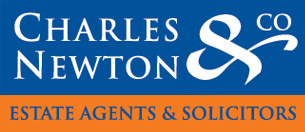Best Collaborative Law Lawyers in Nottingham
Share your needs with us, get contacted by law firms.
Free. Takes 2 min.
Free Guide to Hiring a Family Lawyer
List of the best lawyers in Nottingham, United Kingdom
About Collaborative Law in Nottingham, United Kingdom:
Collaborative Law in Nottingham, United Kingdom is a form of alternative dispute resolution where parties work together with their lawyers to find mutually acceptable solutions to their legal issues. This process is often used in family law matters, such as divorce and child custody cases, but can also be applied to other areas of law.
Why You May Need a Lawyer:
You may need a lawyer in Collaborative Law to ensure your rights are protected, to navigate complex legal procedures, and to help facilitate communication and negotiation with the other party. A lawyer can provide you with legal advice, support, and representation throughout the collaborative process.
Local Laws Overview:
In Nottingham, United Kingdom, Collaborative Law is governed by the Family Law Act 1996. This legislation outlines the procedures and requirements for collaborative practice in family law matters. It is important to be familiar with these local laws when seeking legal advice in Nottingham.
Frequently Asked Questions:
1. What is Collaborative Law?
Collaborative Law is a process where parties work together to resolve legal issues without going to court.
2. How does Collaborative Law differ from mediation?
In Collaborative Law, each party has their own lawyer who provides legal advice and representation throughout the process. In mediation, a neutral third party helps facilitate communication and negotiation between the parties.
3. Is Collaborative Law legally binding?
Once an agreement is reached through Collaborative Law, it can be made legally binding by submitting it to the court for approval.
4. How long does the Collaborative Law process take?
The length of the Collaborative Law process varies depending on the complexity of the legal issues involved and the willingness of the parties to cooperate and negotiate.
5. Can I still go to court if Collaborative Law fails?
If the Collaborative Law process is unsuccessful, both parties will need to hire new lawyers if they choose to pursue the matter in court.
6. Are the discussions in Collaborative Law confidential?
Yes, discussions in Collaborative Law are confidential and cannot be used as evidence in court proceedings.
7. What happens if one party is not honest during the Collaborative Law process?
If one party is not honest during Collaborative Law, the process may be terminated, and the parties may need to seek resolution through other legal avenues.
8. How much does Collaborative Law cost?
The cost of Collaborative Law varies depending on the complexity of the legal issues involved and the time it takes to reach an agreement. It is important to discuss fees with your lawyer upfront.
9. Can I use Collaborative Law for business disputes?
While Collaborative Law is often used in family law matters, it can also be applied to business disputes, employment issues, and other legal matters.
10. How do I find a Collaborative Law lawyer in Nottingham?
You can search for Collaborative Law lawyers in Nottingham through the Nottingham Law Society or ask for recommendations from friends, family, or other legal professionals.
Additional Resources:
For more information on Collaborative Law in Nottingham, you can visit the Nottingham Family Court or contact the Collaborative Family Law Group of Nottingham.
Next Steps:
If you are in need of legal assistance in Collaborative Law in Nottingham, it is important to contact a qualified lawyer who is experienced in this area. They can help guide you through the process and provide you with the support you need to reach a satisfactory resolution.
Lawzana helps you find the best lawyers and law firms in Nottingham through a curated and pre-screened list of qualified legal professionals. Our platform offers rankings and detailed profiles of attorneys and law firms, allowing you to compare based on practice areas, including Collaborative Law, experience, and client feedback.
Each profile includes a description of the firm's areas of practice, client reviews, team members and partners, year of establishment, spoken languages, office locations, contact information, social media presence, and any published articles or resources. Most firms on our platform speak English and are experienced in both local and international legal matters.
Get a quote from top-rated law firms in Nottingham, United Kingdom — quickly, securely, and without unnecessary hassle.
Disclaimer:
The information provided on this page is for general informational purposes only and does not constitute legal advice. While we strive to ensure the accuracy and relevance of the content, legal information may change over time, and interpretations of the law can vary. You should always consult with a qualified legal professional for advice specific to your situation.
We disclaim all liability for actions taken or not taken based on the content of this page. If you believe any information is incorrect or outdated, please contact us, and we will review and update it where appropriate.










